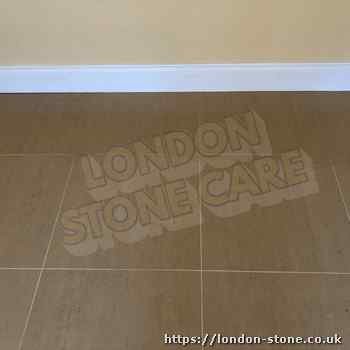
Porcelain Tiles Cleaning London
Check Out Superior Porcelain Tiles Cleaning London.
- If want Porcelain floor cleaning, we are able to assist you to
- Over two decades working experience cleaning Porcelain floors.
- Our trusted consultants are here to assist you with the Porcelain cleaning, get your quote now.
Is It Simple To Clean Porcleain Tiles?
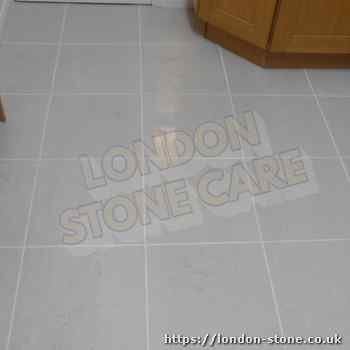
Cleaning dirty Porcelain is a real hassle, especially if there is ingrained soil in the floor tiles as well as the grout.
Being able to get through basic Porcelain floor cleaning research is often difficult.
There are lots of service providers promising to offer good results, but how can you make an informed choice.
This is a guide to Porcelain restoration to help you when selecting a Porcelain restoration contractor.
Porcelain is characterised as ceramic, although porcelain is made with additional products to common ceramic floor tiles.
Good quality porcelain tile has very low porosity, which means less stains, less water damage, and less ned for for sealing.
Some inferior porcelain tiles have pores in the surface which will absorb dirt.
This soil may be tough to remove. We can get rid of ingrained soil with equipment designed to go into the microscopic pits where the soil is trapped.
Our porcelain sealers may help stop any further dirt problems.
In the event that porcelain is a a solid colour, we are able to grind the porcelain, exactly like granite or marble restoration.
Cleaning Porcelain Tiles

Porcelain tile flooring cleaning is usually less complicated compared with natural stone cleaning and restoration.
This glazed polish accelerates restoration.
Specialized tile cleaning will still provide better results.
We always put on an expert tile sealer after cleaning and restoration.
Sealing helps make mopping much easier and helps to protect against spillages.
Porcelain Tile Cleaning - The Process
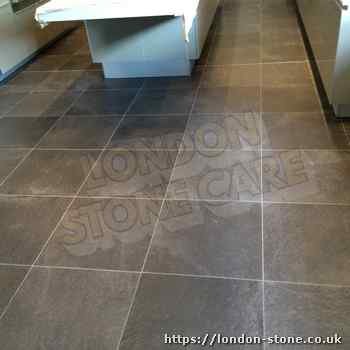
Just how can we clear away this ingrained dirt?
Use a powerful cleaner. And then we leave the cleaner for around twenty minutes to break up the greasy impacted dirt. Rotary scrbbing equipment gets the impacted dirt from the stone.
Then, rinse and vacuum away the slurry and check out the condition of the floor. If there is remaining ingrained dirt, scrub and rinse until it is clean. A couple of scrub and rinse steps is usually sufficient for honed Porcelain. rough surface Porcelain needs more cleaning ad scrubbing passes. Srubbing machinery is unable to take out impacted soil from deep holes.
A hot pressure rinse step is often required. Pressurised warm water is pushed into the stone, releasing the impacted dirt, that's completely vacuumed off. Pressurised rinsing gets rid of any residual dirt.
The Optimum Sealer for Porcelain Tile and Grout.
An impregnating sealer is usually put on Porcelain Tile Grout. One or two coats of impregnating sealer must certanly be sufficient for Porcelain Tile Grout. Porcelain Tile and Grout tiles must be re-sealed each year to retain the degree of protection. An impregnating sealer is not going to stop acid spills etching the Porcelain Tile and Grout. {This means that acid spills for instance [xfield_acid-spills] will penetrate the impregnating sealer in your Grout, leaving a dull etch mark.}
Coloured acid spills will also stain your Grout .
Polishing Porcelain Tiles

Porcelain is a hard material. Though Porcelain is hard, it may be harmed. Scratching will ultimately lead to dullness. But worn Porcelain doesn't have to be replaced.
Many natural stone firms will not restore and polish Porcelain. But our specialists fully understand Porcelain's unyielding style, and also have the correct machines and processes to have it looking its very best once again. We are able to revitalise Porcelain to remove the destruction, unveiling a new damage-free surface. Our professionals use machines specifically made for Porcelain refinishing. They'll produce a cosy, inviting matt or honed finish, a stunning, mirror gloss, or a finish in between.
Polishing Of Porcelain - The Process
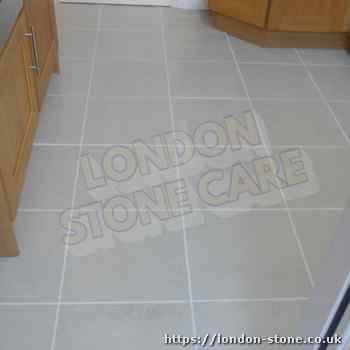
In the event that your Porcelain has just started to lose its shine, it could be feasible to revitalize the gloss by just polishing. Special Porcelain polishing powders and creams incorporating tiny abrasive grains. The creams are massaged to the floor using special polishing pads and incredibly heavy polishing apparatus weighing in at 100kilograms and more. The polishing paste removes minute surface scratches and polishes the top to a high gloss. This method is not going to take off visible scratches or dull spots.
Porcelain Honing And Polishing
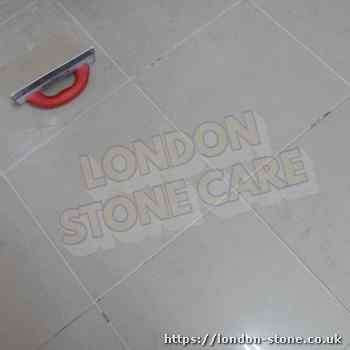
Scratches and dull patches in Porcelain need to be removed with diamond honing before the Porcelain may be polished. Porcelain honing uses weighty rotary honing equipment with diamond-filled disks. The abrasive diamonds clean out a tiny level of Porcelain from the surface of the Porcelain tiles, uncovering a new, smooth finish, ready for polishing. In the event that your Porcelain tiles are irregular, with lippage over 1mm, or if there are some deep scratch marks the Porcelain ought to be ground before starting off honing.
Porcelain Tile Restoration
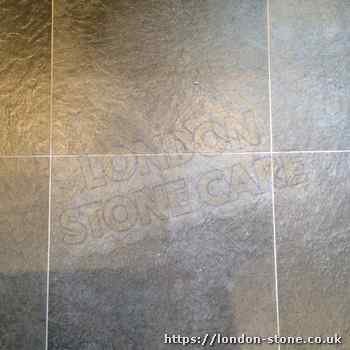
A Porcelain floor will want a complete restoration if you have any damage, deep scratches or lippage. Uneven tiles can be an eyesore, and in some cases, a slip hazard. Metal diamond equipment grinds off the top, (also referred to as lippage removal) to give a flat, level surface using diamonds encased in a soft metal base, built to remove millimetres of Porcelain.
Grinding is an extremely aggressive and lengthy procedure, only to be achieved by specialists with all the right machinery and training. After grinding, a black color floor will look almost light due to the scratches made by the grinding work.
As soon as your Porcelain floor is made level, you can then have the finish you want, honed, high-polish, or somewhere in between.